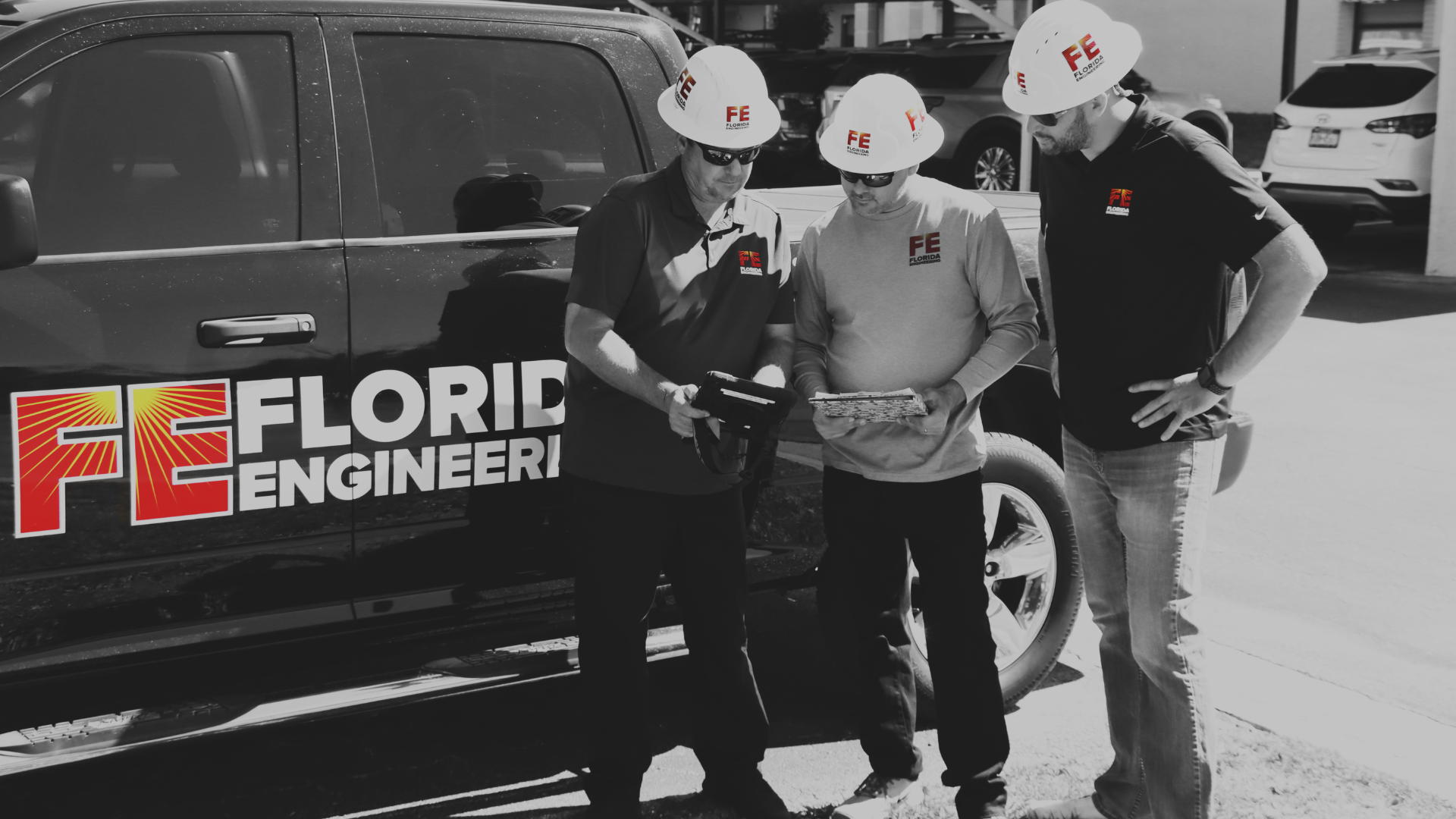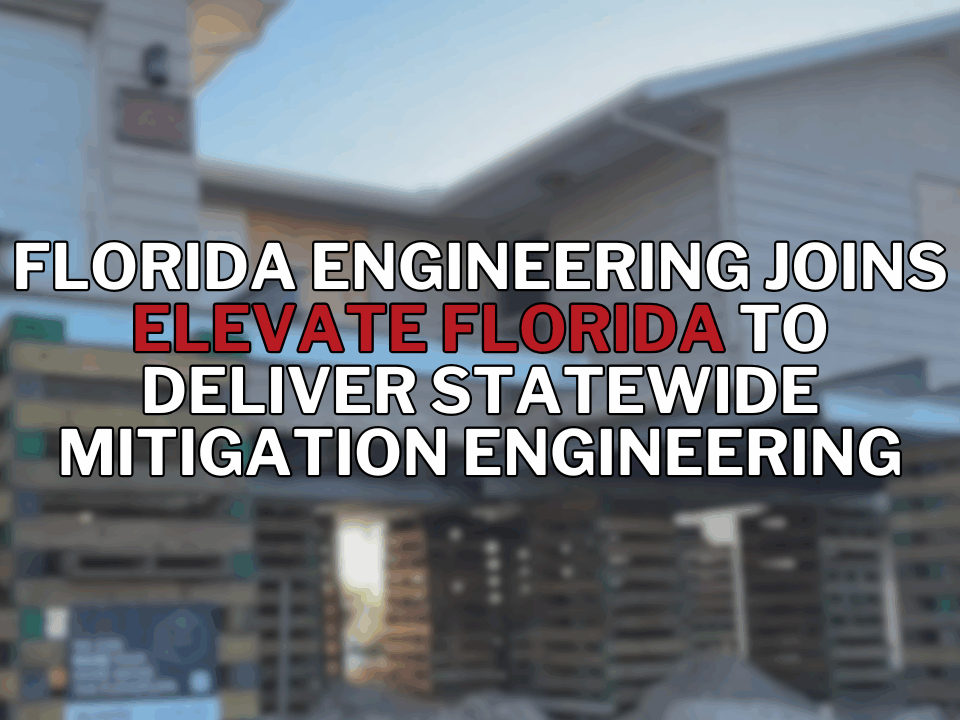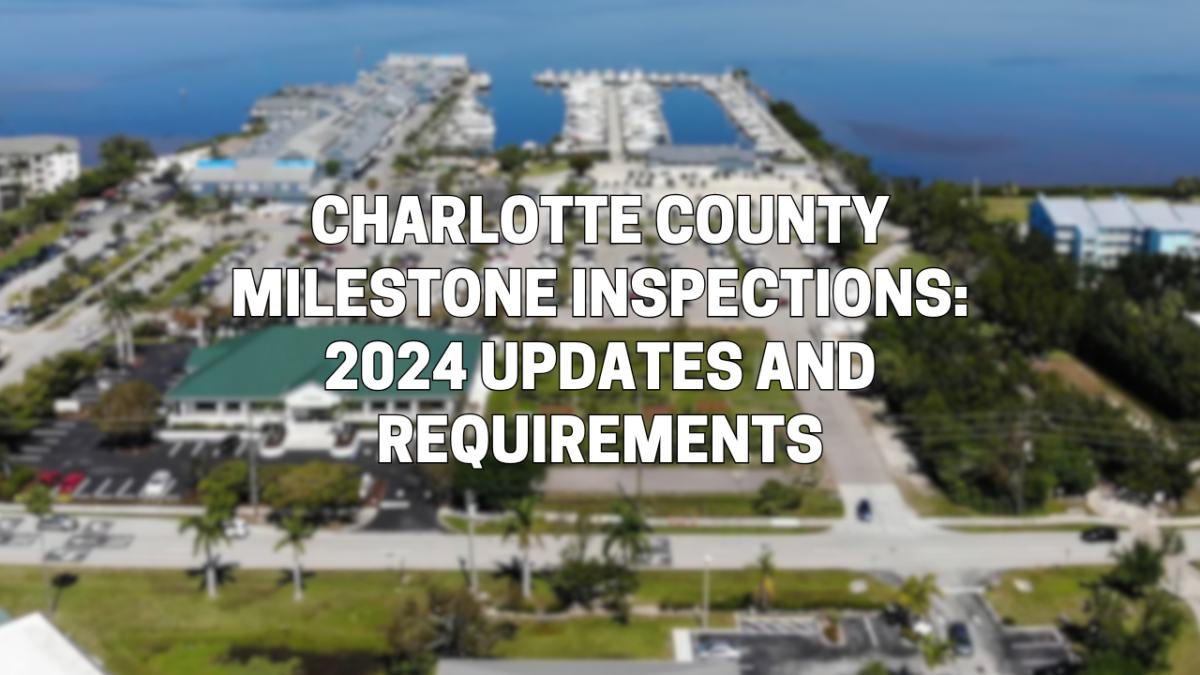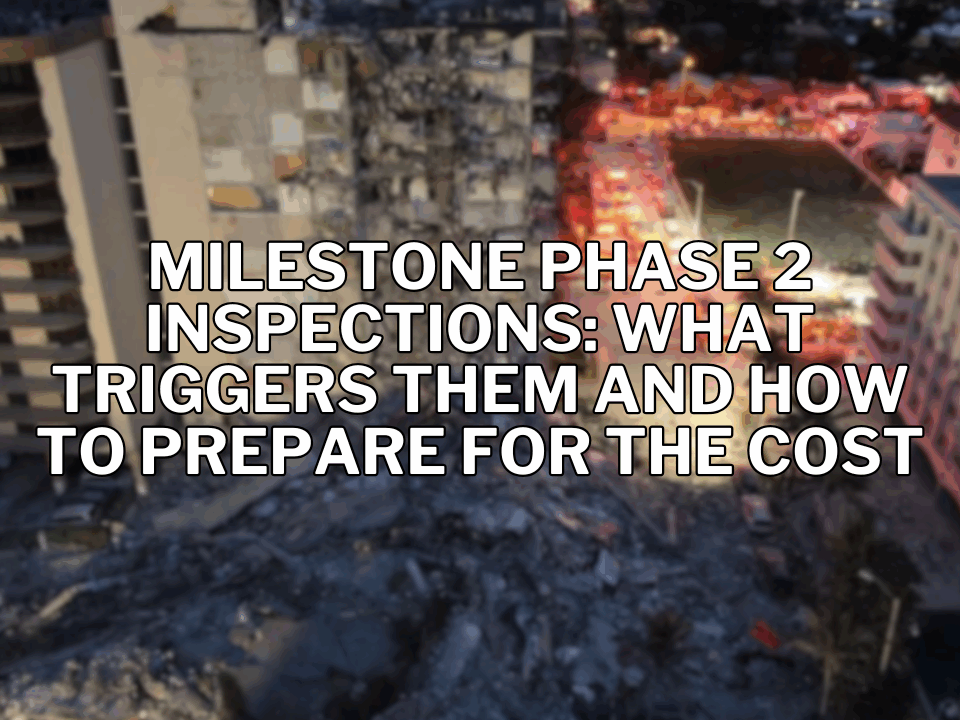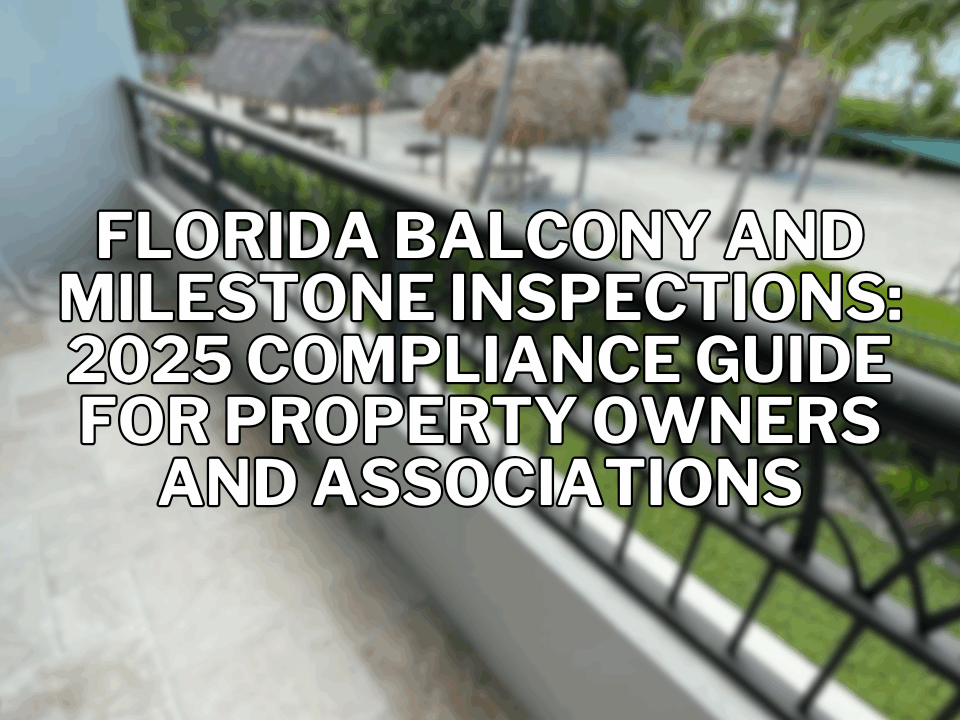In response to the tragic collapse of the Champlain Towers in 2021, Florida enacted legislation to ensure the structural integrity of condominiums and cooperative buildings. These rules, focusing on milestone inspections, are especially important for coastal regions like Charlotte County. This article provides an overview of the milestone inspection process, its legislative background, and the key requirements for buildings in Charlotte County.
Legislative Background
The foundation of milestone inspection legislation stems from the June 24, 2021, collapse of the Champlain Towers condominium in Surfside, Miami. The building’s sudden failure resulted in the loss of 98 lives and prompted state-wide concerns about building safety. In response:
- Senate Bill 4D was passed in May 2022 by the Florida legislature. This bill mandates structural inspections of condominiums three or more stories tall once they reach 30 years of age, with further inspections every 10 years.
- Buildings within three miles of a coastline, due to higher exposure to environmental stresses such as salt water, must undergo their first inspection at 25 years of age, followed by inspections every 10 years.
In 2023, further clarifications came with the Senate Bill 154, often referred to as the “Glitch Bill.” This bill allows local jurisdictions to modify the initial 25-year inspection requirement for coastal buildings based on specific environmental conditions.
What Are Milestone Inspections?
Milestone inspections are structural assessments designed to ensure the safety of older buildings. For condominiums and cooperative buildings that are three or more stories in height, these inspections are mandatory once a building reaches a specific age threshold. The process is as follows:
- Phase One Inspection: A licensed architect or engineer performs a visual examination of the building’s structural components. This phase assesses the general condition of the building without invasive testing.
- If no significant structural deterioration is detected, the process ends here.
- Phase Two Inspection: If phase one reveals potential issues, a more in-depth examination takes place. This may involve destructive or non-destructive testing to assess areas of concern, ensuring the building is structurally sound and fit for occupancy.
Charlotte County’s Role in Milestone Inspections
Charlotte County does not conduct these inspections directly but plays a key role in tracking compliance. The county ensures that building owners meet the milestone inspection deadlines as stipulated by state law. Specifically, owners are required to hire licensed architects or engineers to perform these inspections.
As of 2024, Charlotte County is focused on:
- Ensuring that all buildings required to undergo milestone inspections do so by the prescribed deadlines.
- Sending communications to affected property owners.
Key Requirements for Charlotte County in 2024
The milestone inspection requirements affect many buildings in Charlotte County. As of 2024:
- 168 buildings in unincorporated Charlotte County are 30 years old or older and must undergo milestone inspections this year.
- 178 buildings are 25 years or older and will soon be subject to inspection.
The County is actively working to ensure compliance by December 31, 2024. These efforts include notifying building owners of their obligations and tracking completed inspections.
Challenges and Considerations
One of the ongoing challenges in Charlotte County is determining whether to adopt the 25-year inspection requirement for buildings within three miles of the coast, as permitted by Senate Bill 154. The County Commission is considering three options:
- Adopt a county-wide 25-year inspection rule.
- Implement a 25-year inspection rule for coastal buildings only and maintain the 30-year rule for inland areas.
- Continue with the 30-year inspection rule for the entire county.
As of April 2024, Charlotte County has yet to formalize a decision, but discussions are ongoing to assess the best course of action based on local conditions and environmental risks.
Current Activities
To ensure that all affected buildings meet the new inspection requirements, Charlotte County’s Community Development Department is overseeing the following actions:
- Communicating with owners of buildings 30 years or older.
- Developing a compliance tracking system to ensure all required inspections are completed on time.
Conclusion: The Importance of Milestone Inspections
In the wake of the Surfside tragedy, Florida has taken significant steps to enhance building safety through milestone inspections. These inspections are essential for maintaining the safety and structural integrity of older buildings, particularly in coastal areas like Charlotte County. Building owners should prioritize compliance with the inspection schedule, as it not only ensures safety but also fulfills legal obligations under Florida law.
If you are a condominium or cooperative building owner in Charlotte County, ensure that you engage with a licensed architect or engineer to perform the necessary milestone inspections. Staying ahead of these requirements can protect residents’ lives and property while avoiding penalties for non-compliance.
Call to Action
For more information or to confirm your building’s inspection deadlines, contact Charlotte County’s Community Development Department or visit their official website. Proactive steps today can prevent tragedies tomorrow.
Need help? Contact Florida Engineering LLC to guide you through the process. Our team of experts can help you navigate your specific obligations and prepare for your building inspections with confidence. Don’t wait—start preparing today!
Contact Us – The Milestone Experts Near Me – Florida’s Condominium Inspections
- Phone: 941-391-5980
- Email: contact@fleng.com
- Address: 4161 Tamiami Trail, Suite 101, Port Charlotte, FL 33952
Connect With Us
Related Services
- Milestone Inspections
- Energy Calculation Services
- 25,30,40,50,60 Year Recertifications
- Pool Engineering Services
- Turnover Inspections
[This above text is for information purposes only and does not constitute engineering or legal advice. Please consult a professional engineer and licensed attorney for any specific answers to your questions about Milestone Inspections and the legal obligations milestone inspections entail.]

